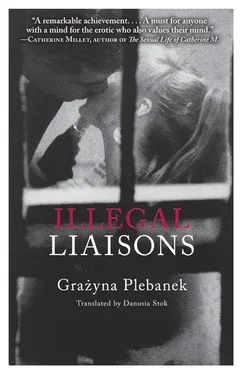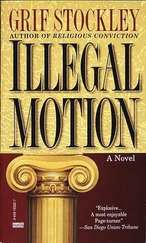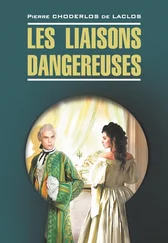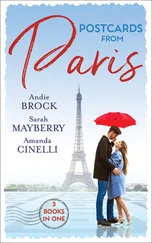Megi runs her fingers through her hair and her eyes return to the circle of men swaying around Andrea; she watches Andrea make room for them, invite them to be the center of her interest. With her attention, her eyes, she extracts from those she is talking to whatever they believe is the best in them; she is their mirror; the canvas for their self-portraits. She merely retouches a little and immediately they appear better – are “the real thing!”
Megi shrugs. She doesn’t believe in Native American male friendship. Brought up by women, she knows that nothing can equal their power. Which is why, when women turn against her, Megi feels lost .
AS HE WALKEDnext to Stefan, Jonathan remembered that, according to Megi, the more time he spent with his friend, the more Jonathan became part of Stefan’s dog team and, like a good Husky, took on some of his friend’s personality for a time: the way he spoke, some of his gestures. “It’s easy to guess who you’ve just seen,” she laughed. “Do I also pick up other people’s traits?” Jonathan worried; he didn’t want to be a chameleon. “No, no,” Megi reassured him. “Only Stefan’s.”
Stefan was less susceptible to Jonathan’s influence and Jonathan consoled himself that even though his friend’s personality may have been more dominating, he, Jonathan, had more empathy. Does that mean I’m more feminine? The thought flitted through his mind, but he quickly rid himself of it. “Masculine” and “feminine” were so flexible and kept on changing; he himself was the best example of this. He didn’t bother to put a name to it. He had already been an outsider in life; he might as well be avant-garde.
This time, as he walked down the street with his friend, Jonathan felt, for the first time, that he was observing him. He studied Stefan’s body language, the glances he threw at passing women, his half-smiles, the way he turned to look – at that woman for example, older than them, classy.
Once she’d passed by, Stefan didn’t even interrupt what he was saying, as though separate cells in his brain registered aesthetic and sexual events without disturbing those responsible for the coherent spinning of a story. Yet the woman walking away must have thought Stefan was still eyeing her because when Jonathan glanced back, he saw that she was trying to step lightly in her stilettos over the uneven pavement.
The street traced a gentle arch. Brussels, he thought, a sexy city where people look at each other and this mutual attention warms them as if they were lying in a beach shelter. A city where Megi had one morning dared to say, “Why clitoris? It should be tickloris.”
They passed another girl at whom Stefan cast his approving eye.
“Not bad,” he muttered.
“Young.”
“What do you expect? Thirty-year-olds are desperate. Marriage and babies – that’s what they have in mind. Forty-year-olds are great but they scare me.”
“Twenty-year-olds in bed are like broth from a stock cube.”
“But you can screw them,” sighed Stefan.
Jonathan stopped short. Stefan walked on a while before realizing he was talking to himself. He turned and looked questioningly at Jonathan.
“She wasn’t even twenty,” Jonathan indicated behind him.
“What’s up with you? I haven’t raped her!”
“You’re forty and dribbling over a girl half your age. Are you retarded or something?”
Stefan cast his eyes around as if to seek understanding from the waiters watching for customers at the Italian restaurants.
“What’s …” he began but Jonathan hissed through clenched teeth, “You don’t like Andrea, do you?”
Stefan stared at him goggle-eyed.
“You don’t like her because she’s just like you,” continued Jonathan, speaking as if he were also listening to himself. “She eyes men in that same way and then …”
Stefan stepped up to him, slowly, as if he were an injured bird.
Two waiters stopped talking; their coal-dark eyes glowered beneath the awning.
“Why do you leave them?” Jonathan jabbed Stefan’s chest with his finger.
“Who?”
“Those birds of yours!”
Stefan gazed at him and, tilting his head to one side, said slowly, as though to a toddler, “Because I’ve got a wife.”
Jonathan shook his head.
“No, no! I mean why do you pick them up? Why do it at all? Understand?”
Stefan walked up to him, sheltering them both from the waiters’ sight.
“Sorry, old chap,” he said quietly. “But I don’t understand.”
Autumn smelled of flowers and it wasn’t clear where the scent was coming from since leaves were rustling in the trees, fumes drifting from cars and police horses, leaving odors more suited to a nineteenth-century street.
With the start of a new school year, Jonathan returned to his routine: he drove the children to school, wrote, fetched them and, when Megi came home and began preparing dinner, took his gym bag and left. Andrea already waited for him in the church. They went to her place and made love on Simon’s bed.
He couldn’t settle his thoughts for a long time after his return; they skipped in euphoria and made him want to run, hold witty discussions, learn Spanish. In order to cover his tracks, he tapped the keyboard while allowing images from an hour ago to scud before his eyes: Andrea snuggling on top of him, her slender thighs wrapped around his hips, his eyes and lips covered by his lover’s dark hair.
In October, Simon left for a whole two weeks. Jonathan wanted to make the most of the time, even though his going to the gym every day might have appeared suspicious. Andrea was the one who showed caution for them both and, as was her wont, was sparing with herself and forced him to wait for her invitation.
He was furious. Why hold on to the rhythm of their first dates? The speed at which they see each other ought to have equalled the strength of the emotions which carried him. He pressed her because she was now the only one he wanted to make love to; her body seemed semifluid and unearthly, their fucking ecstatic.
He stopped enjoying Megi. He waited for his wife to fall asleep at night and only then went to bed. He lay there, still feeling the weight of Andrea’s head on his shoulder, recalling the murmur of their whispering, the tangle of words, the moisture of their tongues, the merging of English and Polish, French and Swedish.
Once, when he’d had enough of waiting for Megi to fall asleep, he silently picked up his phone, which at night he kept beneath the bed and, hiding it behind a bottle of water, started to leave the bedroom. Suddenly, the light of a message flashed on the screen and, magnified by the plastic bottle, fell on Megi’s face.
Only after a while did he dare to look at her. She was asleep … But if she had woken up then, if she’d read what was painted on his face, illuminated by the bluish glow, he would have answered with sheepish simplicity: “I love her. I want to be with her.”
The Pavlov Dogs yapped in Jonathan’s head even as he jogged around Cinquantenaire Park; and – wonders never cease – the point at which he usually grew tired was when he passed one of Brussels’s strange statues, the statue of a dog. The subject was attracted to him like filings to a magnet – Antosia told him how her friend’s bitch had run away during a walk and come back pregnant, then Megi came across a second-hand clothes shop right next to the statue of a dog like the one in Tintin . Their daughter begged them to take in one of her friend’s puppies when they were born; his wife was fascinated by the fact that the bronze dog was peeing.
Jonathan absorbed the information and, although not everything suited his story, something filtered through; be it the nervy peeing here and there of the leader of the mongrel pack or the polygamous personality of the prettiest bitch. Something even made him call one of his chapters “Pushing to get down in the gutter.”
Читать дальше












